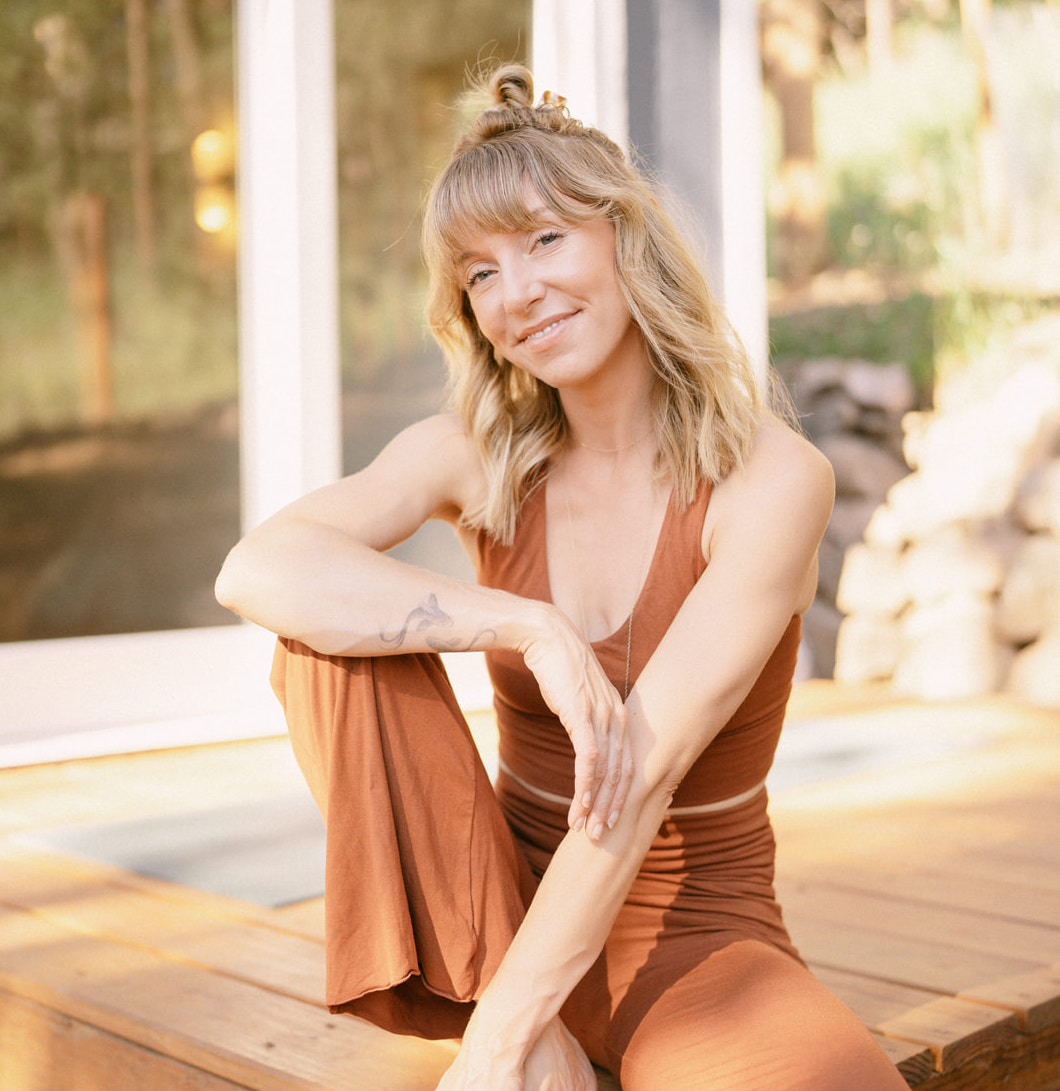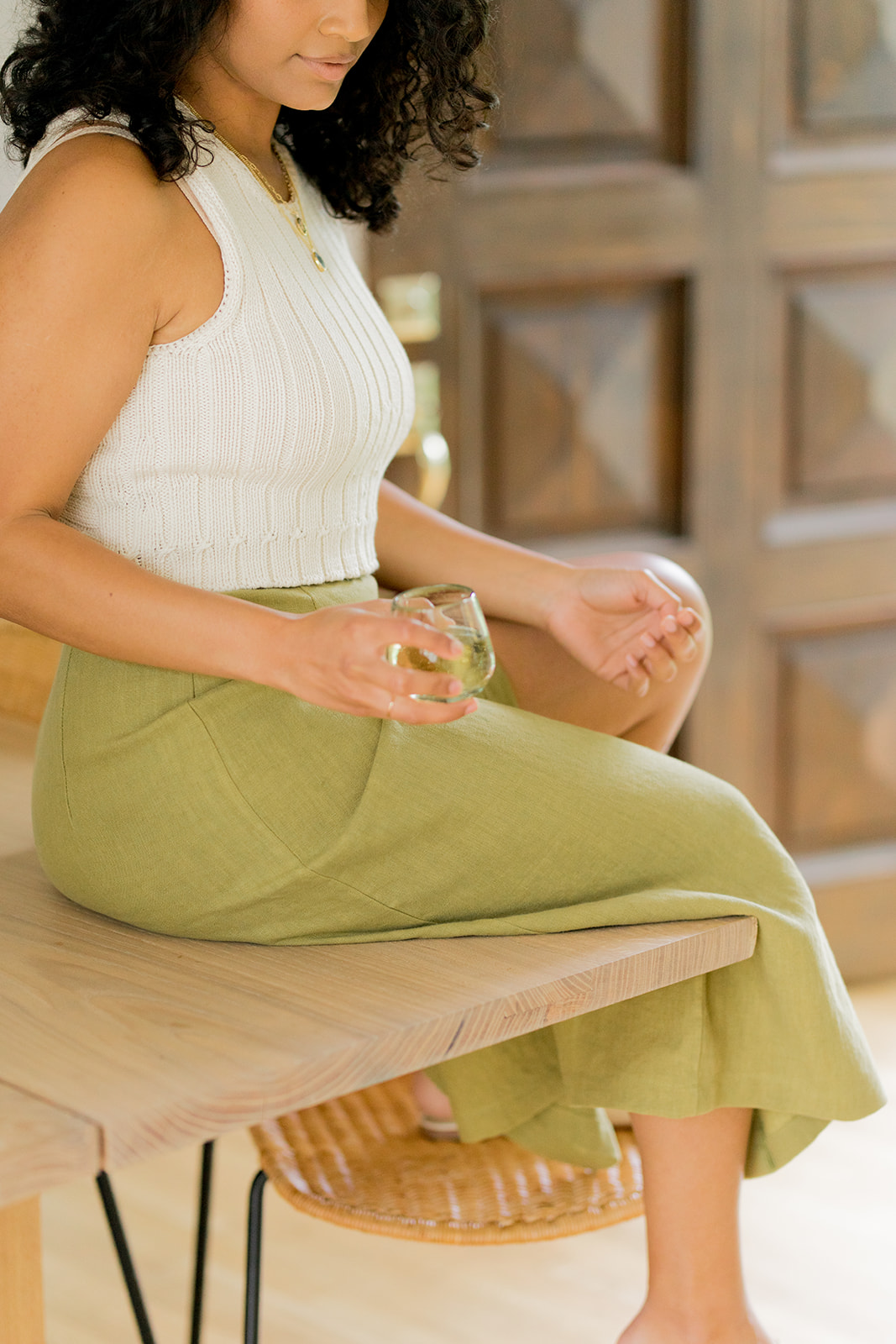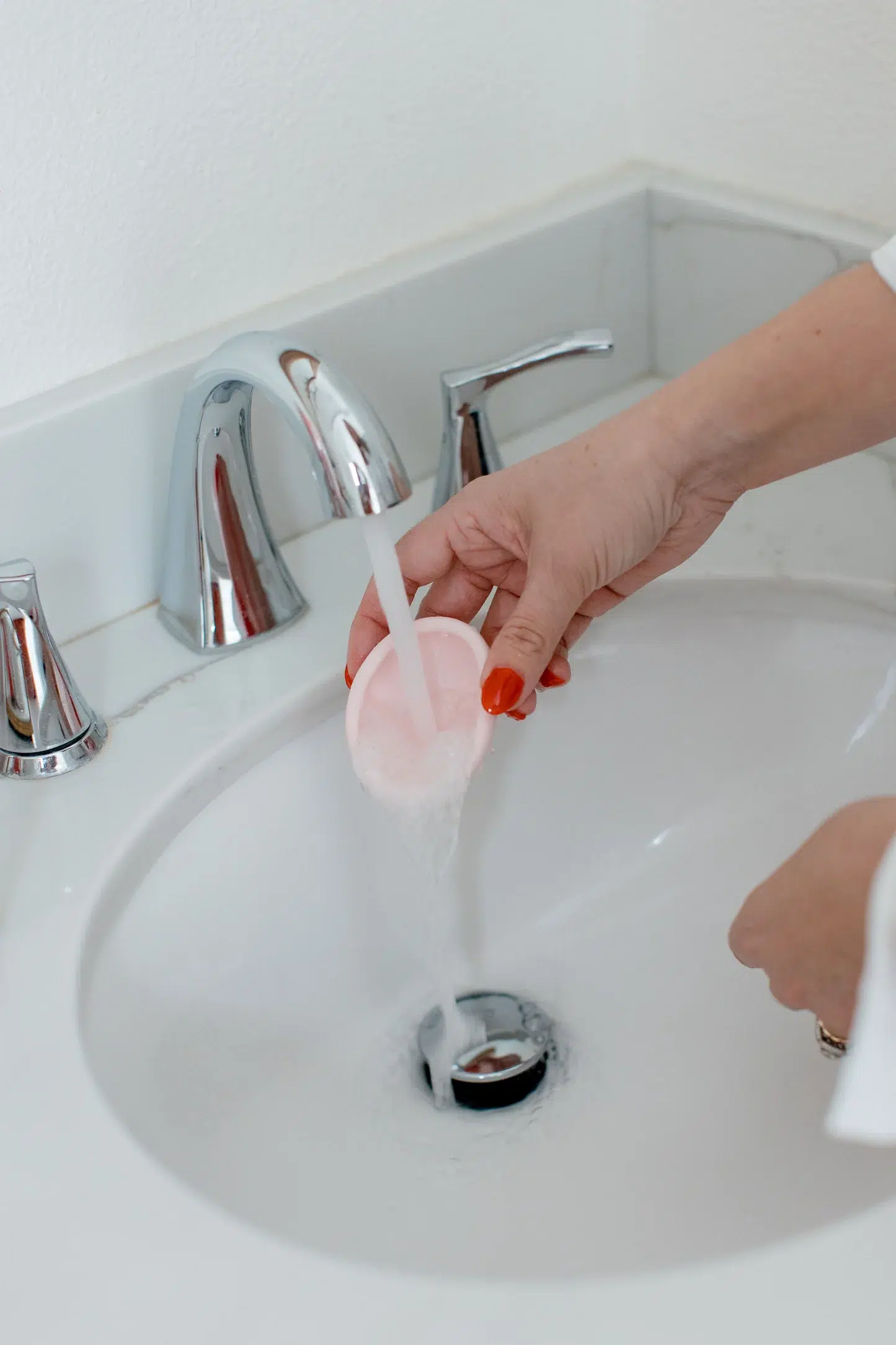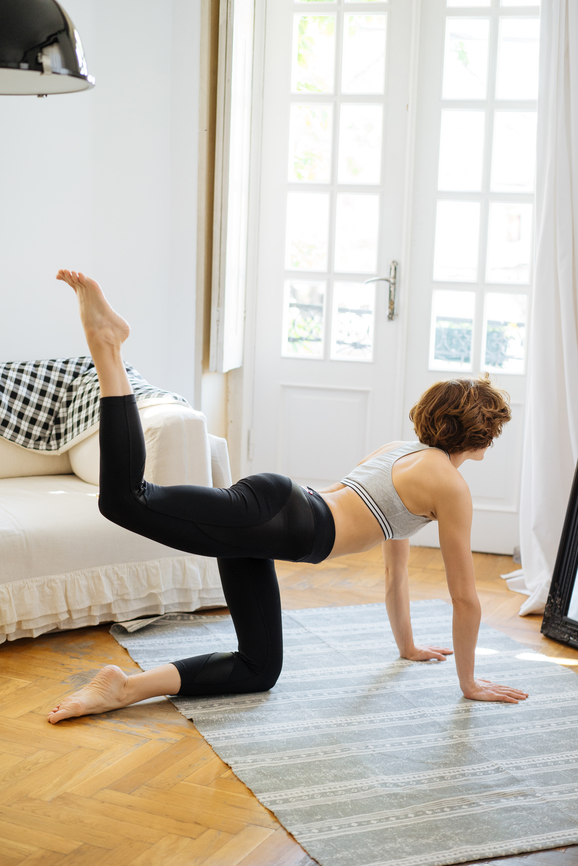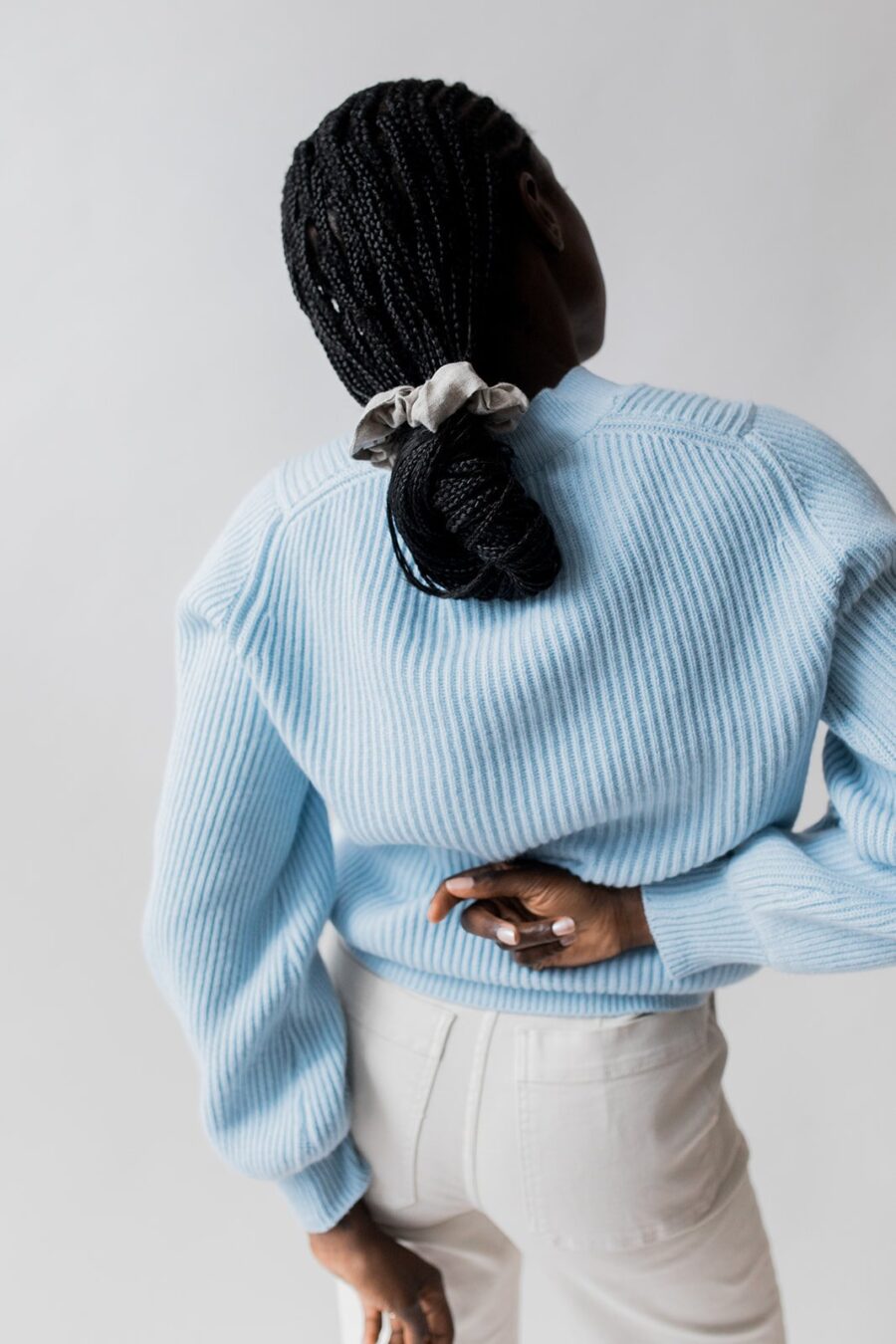
How To Care For Your Mind & Body Each Week Of Your Menstrual Cycle
Understanding our menstrual cycles can sometimes feel overwhelming or confusing. This can be especially true if you experience irregular periods, if you’ve just had a baby, or if you’re going through early menopause. But by learning about our bodies and their specific needs, we can better understand how to care for ourselves during the entirety of our menstrual cycle, not just during flow.
Below, we’ve broken down a typical menstrual cycle—though it’s important to remember that many internal and external factors can influence menstruation, and if you have concerns about your period, we recommend speaking with your doctor. Hopefully, this overview will give you a more comprehensive understanding of what to expect, as well as how to love your body and mind before, during, and after your period.
Looking for a little help? Head here for our favorite cycle tracking apps.
Week One: Menstruation
Your period week marks the start of your cycle (days 1-7). Menstruation is your body shedding the uterine lining that was built up in preparation for pregnancy. There is a lot of “out with the old and in with the new” going on (both mentally and physically) during this time.
For your physical needs:
- Tune in to your physical needs, and try some of the following remedies for easing any aches or pains:
- Take a Clary Sage oil-infused bubble bath. Clary Sage can help balance hormones and soothe the cramping associated with menstrual flow. Rub it directly onto the skin using a carrier oil.
- For quick relief, use a heating pad for warmth and comfort.
- Try these specific yoga poses for when you are menstruating. Meditate and go for walks, remembering to breathe.
- Increase your intake of fats, proteins, dark green veggies, and dark chocolate!
- Drink warm beverages made from herbs for overall comfort and balance. There are some great recipes for making soothing period tonics on Mind Body Green.
For your emotional and mental needs:
Some people can experience a more prolonged Premenstrual Syndrome phase, making the start of their period a little more foggy, moody, and mentally draining. Others may experience an immediate increase of energy on the first day of blood flow due to the spike in estrogen levels and “feel-good chemicals.” Towards the end of your period (days 5 – 7), you may start to feel more in tune with the world around you. This is because of the low levels of progesterone.
- Focus on creative projects or connect with loved ones.
- Notice what your body is needing emotionally during this time—it may be that you need extra love and downtime, or you may want to get out into the world.
Week Two: The Follicular Phase
Your body starts to rebuild the endometrium wall and prepares for the release of a mature egg from the ovaries. Also, your estrogen and testosterone levels are rising.
For your physical needs:
You’ll notice that you’re feeling a lot more like yourself during this time. Your body has lost some of the excess water weight that it may have been using during your period, making you feel less bloated. Any hormonal acne has retreated, and you may notice your skin is glowing.
- Allow for exercise and more cardio, but don’t overdo it.
- Continue to get sleep, drink lots of water, and take time for your to-do lists.
For your emotional and mental needs:
Mentally, you are feeling more confident, motivated, and overall more energized. Channel that focus.
- Allow space for creating or completing projects.
- The spike of estrogen can cause a lot of energy and lead to anxiety if not monitored, so maintain intentional breath-work and don’t overwork yourself.
Week Three: Ovulation
This is the optimal time to become pregnant, making it crucial for connecting with the body and knowing when to practice safe sex. If you’re trying to get pregnant, let the magic happen!
For your physical needs:
What’s fascinating about this phase is, while it lasts five to seven days, an egg is only released on one day. Many menstruating people will feel cramping in the ovaries (either on the right or left), which is an indication that an egg is being released into the fallopian tubes. It remains there for 24 hours, waiting for a sperm. If not fertilized, it dissolves (our bodies are amazing)!
Because this is the optimal time for pregnancy, there is typically an increase of libido due to the higher levels of testosterone. You may feel inspired to wear sexier clothes. You may also feel attracted to the pheromones of others.
- This is a great time to enjoy scented candles and essential oils.
- Take this week to honor yourself.
For your emotional and mental needs:
Whether you are at the beginning or end of ovulation, it is important to be mentally aware of where you’re at in your cycle. When you’re feeling extra flirtatious, honor that, and if you’re feeling a little more confident, dress up! Do whatever makes you feel the best, and honor your body.
- Be aware that, towards the end of ovulation, libido levels can drop due to higher levels of progesterone. This can bring lower energy levels and less sex drive. This phase is called pre-PMS and can cause some mood swings.
- Remember, your body is going through a lot during this phase, so be extra gentle with yourself and allow time for rest.
Week Four: Luteal Phase
After ovulation, the increase of progesterone aids in the uterine lining thickening to create a nest for a potential embryo to form. If there is no fertilized egg, your estrogen, testosterone, and progesterone will decrease, and this can cause some significant fluctuations in the body.
For your physical needs:
This phase can be a real challenge both physically and mentally. However, the good news is that there is a spike in libido again during this time. This spike can help with some of the not-so-pleasant physical and mental symptoms. Physically, you may notice some hormonal breakouts, breast tenderness, and fatigue.
- Focus on getting plenty of sleep and minimize too many social commitments.
- Make healthy meals and continue to exercise as that can aid in balancing mood swings, as well as help with physical discomfort throughout the week.
For your emotional and mental needs:
- Communicate with the people around you about your symptoms so that you don’t feel alone. Know that this is just part of the process in your body’s rejuvenation.
- Enjoy quiet moments alone during this time to read and journal. Practice saying, “I love you, body” a lot.
- Start a gratitude journal at night before you go to sleep to remain in a state of positivity.
- If you feel symptoms of depression or sadness, reach out to people in your life or a therapist. We love these online therapy options for accessible support.
Rest, Love Yourself, Repeat.
“In an ideal world, we could rest and be alone during the harder days of our cycles.”
In an ideal world, we could rest and be alone during the harder days of our cycles. However, many of us lead busy lives, and there may not always be time to relax, journal, or take baths. Similarly, there is still a lot of period shame happening, which is why it’s even more important we talk about menstruation and help break the stigma.
May we listen to what our bodies need, practice the innate intuition that we are gifted with, and be gentle without ourselves—no matter how our cycles look.
Courtney Jay is a writer at The Good Trade. She is also a yoga instructor, health enthusiast, and sustainable fashion advocate. She believes the most powerful way to nurture the planet is to nurture ourselves. You can find more of her writing and take one of her online yoga classes on her website Coincide.
